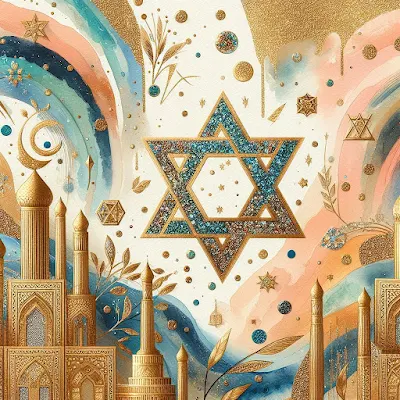The Eternal Stones | Unraveling The Significance Of The Western Wall In Jerusalem
Introduction:
In the heart of Jerusalem, where history, spirituality, and faith converge, stands the Western Wall—a symbol of resilience, devotion, and the enduring connection between the Jewish people and their sacred heritage. In this blog post, we explore the profound significance of the Western Wall, also known as the Kotel, shedding light on its historical, religious, and cultural importance.
Historical Foundation:
The Western Wall is a remnant of the retaining wall that once surrounded the Second Temple, which was destroyed by the Romans in 70 CE. This wall, made of massive stones, has withstood the passage of centuries and serves as a tangible link to the ancient Jewish presence in Jerusalem. The historical significance of the Western Wall lies in its connection to the Temple Mount, the holiest site in Judaism.
For Jewish people around the world, the Western Wall is a site of unparalleled spiritual significance. It is considered the closest accessible point to the Holy of Holies—the inner sanctum of the ancient Temple. Pilgrims and worshipers gather at the Western Wall to pray, lament historical losses, and express gratitude. The wall is a place where the divine and the human intersect, fostering a deep sense of connection to God and shared heritage.
The Western Wall stands as a symbol of the Jewish people's enduring strength and resilience throughout centuries of adversity. Despite historical challenges, including the destruction of the Temple and various attempts to sever the connection between the Jewish people and their sacred sites, the Western Wall remains standing—a testament to the unwavering faith and determination of the Jewish community.
The Western Wall is a vibrant center of Jewish prayer and rituals. Visitors often place handwritten notes, or kvitlach, between the ancient stones, containing prayers, wishes, and expressions of hope. The rhythmic swaying of worshipers during prayer creates a powerful collective energy, emphasizing the communal aspect of Jewish faith.
Celebrations and Commemorations:
The Western Wall serves as a focal point for Jewish celebrations and commemorations. Bar and Bat Mitzvah ceremonies, weddings, and other life cycle events take place at this sacred site. It is also a place of national significance, hosting ceremonies for Israeli Independence Day, memorial services, and other events that reflect the deep connection between the Jewish people and the land of Israel.
The Western Wall is a unifying symbol for Jews worldwide. Pilgrims from diverse backgrounds, traditions, and countries gather at the wall, transcending geographical and cultural boundaries. It embodies a shared heritage and a collective commitment to the preservation of Jewish faith and identity.
Ongoing Archaeological Discoveries:
The area surrounding the Western Wall continues to be a site of archaeological exploration. Excavations uncover layers of history, offering insights into the lives of those who lived in Jerusalem centuries ago. These discoveries contribute to a deeper understanding of the city's rich and complex past.
Conclusion:
The Western Wall in Jerusalem is more than a physical structure; it is a living testament to the enduring spirit of the Jewish people. As a place of prayer, reflection, and historical resonance, the Western Wall weaves together the threads of faith, heritage, and resilience. Its stones echo with the prayers and aspirations of generations, making it a timeless symbol of the profound connection between the Jewish people and the sacred city of Jerusalem.

